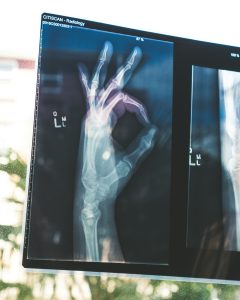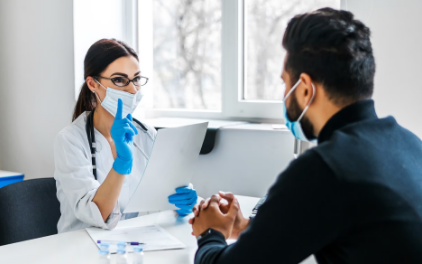Many of us do not value health until sickness strikes, often viewing the pursuit of well-being as a distant concept reserved for older individuals, the wealthy, or those focused on weight loss. However, maintaining good health should be a daily priority for everyone. When we confront health issues, whether the seasonal flu or a more severe condition, we realise prevention is better than cure.
This personal journey toward health may be hindered by a significant global gap in healthcare access, leaving many without essential resources. In this light, World Health Day serves as a reminder of the universal importance of healthcare and the challenges in accessing it.
A Global Call to Health for All
Observed annually on April 7, World Health Day commemorates the founding of the World Health Organization in 1948. Since 1950, it has focused on raising awareness of specific global health issues, highlighting priority areas such as mental health, maternal care, and climate change.
Decades on, World Health Day continues to emphasise that access to healthcare is a fundamental human right for all, regardless of age, gender, race, religion, political beliefs, economic status, or social standing.
This day not only acknowledges the public health achievements that have improved the quality of life worldwide since 1950, but also calls for proactive and collective action throughout the year to tackle current and future health challenges and ensure better health outcomes for everyone.
Health – More Than Just Avoiding Sickness
Health is not merely the absence of disease; it is a holistic state of physical, mental, social, spiritual, and intellectual well-being. Individuals experience good health when both body and mind function optimally, allowing them to lead balanced and fulfilling lives. Simply adding an occasional salad to your diet or visiting the gym once a week isn’t enough. Achieving good health requires access to reliable healthcare, supported by awareness, updated knowledge, discipline, and consistent effort. You can deepen your understanding of overall health and join World Health Day’s year-round mission to raise awareness and drive change by exploring our thousands of free online courses on relevant topics, such as:
- Health and Healthcare

World Health Day has focused on maternity care in previous years.
- Health and Fitness
- Mental Health
- Communicable Diseases
- Non-communicable Diseases
- Immunology
- Human Nutrition
- Food Safety and Hygiene
- Nursing
- Health and Safety
- Women’s Health and Welfare
Why Physical Health and Exercise Matter
Physical health is more than just the absence of illness; it includes feeling fit, confident, and active. It involves maintaining a healthy and resilient body through a mix of regular exercise, balanced nutrition, and adequate sleep. Running, swimming, strength training, and various sports can enhance your fitness and endurance, enabling you to participate energetically in daily life. Consuming a nutritious diet rich in whole foods fuels your body and supports overall well-being, while sufficient sleep is essential for recovery and mental clarity. Individuals can lead balanced and fulfilling lives by prioritising all aspects of physical health.
Some key benefits of maintaining physical health include:
- Increased Energy and Stamina: Alison’s free online course on Running Tips, Swimming and Strength Training can help you improve your fitness and energy levels.
- Enhanced Mobility and Flexibility: Explore our Guide to Stretching For Flexibility & Posture to improve your flexibility, balance, and coordination, which is essential to prevent falls and injuries, especially in later life.
- Improved Immune Function: A fit body fights off illness more effectively. Learn more about the immune system with our introductory course.
- Reduced Risk of Chronic Diseases: Educate yourself about some Common Medical Conditions to help you prevent, delay, or manage chronic diseases, such as diabetes, heart disease, and certain cancers.
- Weight Management: Enrol with Alison to learn about Weight-loss Strategies or sign up for our course Lose Weight by Managing Proteins, Carbs & Fats.
- Better Mental Health: Physical activity boosts mental well-being by releasing endorphins that reduce stress, anxiety, and depression. Exercise also improves sleep quality. Discover the relationship between physical and mental health and sleep in our free online course on Sleep Therapy.
- Boosted Cognitive Function: Regular exercise increases blood flow to the brain, improving memory, concentration, and overall cognitive function while also reducing the risk of age-related cognitive decline.
- Longevity and Quality of Life: Maintaining physical health can slow the ageing process, helping you stay active, independent, and capable of enjoying a higher quality of life well into later years.
- Self-Esteem and Confidence: Being physically healthy boosts self-esteem and confidence, leading to a more positive self-image, which often translates into improved social interactions and emotional well-being.
Give Mental Health Its Due Weight
Good mental health isn’t just about feeling happy – it’s also about thinking clearly, managing stress, and forming stronger relationships. When our mental health is robust and stable, we can:
- Lead balanced and fulfilling lives at home, at work, and in society.
- Become physically healthier.
- Make better decisions.
- Boost our emotional resilience, mood, and self-esteem.
- Reduce anxiety and the risk of depression.
- Improve our relationships.
Mental health is personal and unique, with each individual experiencing different levels of challenge and distress. That said, whether you navigate personal challenges or help others professionally, understanding mental health is vital to building a healthier society. It requires as much care and attention as physical health and ongoing education. Alison offers a diverse selection of free online mental health and wellbeing courses to help you make a real difference.

- Are you looking for a broader understanding of mental health? Enrol in our Diploma in Mental Health for a solid foundation in fundamental concepts and practices supported by real-world examples.
- Are you interested in understanding conditions such as stress and depression? Mental Health Studies – Understanding Behaviour, Burnout, and Depression digs deep into these important topics.
- Do you work in healthcare? Our Mental Health in Nursing course focuses on providing mental health support in clinical settings.
- Are you an educator? Our Mental Health Training for Teachers course is packed with tips and strategies to support the mental well-being of students and colleagues.
- Do you wish to support young people? Our course in Mental Healthcare in Children and Young Adults dives into the specific mental health challenges they face and how you can help.
- Are you curious about how the world has changed since COVID? Our Mental Health in the Post-Pandemic Era course explores the mental health shifts we’ve seen in recent years.
Social Wellness: The Missing Link?
Social wellness concerns our relationships. Often overlooked, it can positively influence physical and mental well-being and lead to wholesome behaviours. You can benefit from Alison’s free online course on Overcoming Social Anxiety: Empowerment for Authentic Connections. After all, positive social connections help:
- Foster a sense of belonging and security.
- Lower the risk of dementia, as social interactions benefit brain health.
- Boost the immune system.
- Increase one’s lifespan.
“A life without health is like a river without water.”
Our physical, mental, and social health, combined with spiritual and intellectual health, help us live our best life. If we neglect one, it can have a ripple effect on the others. Hence, studies and experts urge incorporating a holistic approach to health encompassing all five elements. As Maxime Lagacé, a Canadian professional ice hockey goaltender, wisely said: “A life without health is like a river without water.”
Ways to Partake in World Health Day
World Health Day is not just about raising awareness on April 7 each year – it is about taking action every day to spread and implement the message of health for all worldwide.

Here’s how you can participate in the celebrations throughout the year:
- Donate to local health initiatives or volunteer.
- Become a blood or bone marrow donor.
- Book your annual check-up.
- Make healthy lifestyle changes. Start a new fitness routine. Improve your diet.
- Share healthy recipes or fitness tips with friends.
- Find creative ways to educate and include your colleagues and family in learning to care for their health.
- Spread love and gratitude to the health and medical staff you encounter.
- Use hashtags such as #HealthForAll and #WorldHealthDay to spread the word on social media.
Educate Yourself With Alison
Gaining knowledge is a powerful tool to promote health and celebrate World Health Day. Use our free online health courses to educate yourself about health and share your knowledge with others to contribute to a healthier community and world.
Take Charge of Your Health
Your health is your greatest asset. If you think your mental health could use some attention, start by taking our free mental health check-up. This short assessment will help you measure your well-being and guide you toward a healthier and happier life, starting today!
Take Our Wellbeing Assessment
Frequently Asked Questions
Question 1: What is the purpose of World Health Day?
Answer: World Health Day is a global health awareness day celebrated annually on April 7. Its purpose is to highlight specific health issues and promote global efforts to achieve better health for all.
Question 2: Who organises World Health Day?
Answer: World Health Day is organised by the World Health Organization (WHO), a specialised agency of the United Nations responsible for international public health.
Question 3: When was World Health Day first celebrated?
Answer: World Health Day was first celebrated in 1950 to commemorate the founding of the WHO in 1948.
Question 4: Are Alison’s health courses free?
Answer: Yes, all of Alison’s health courses are completely free to enrol in and study.
Question 5: Do I need any prior knowledge or experience to take these courses?
Answer: Many of Alison’s health courses are designed to be accessible to learners with little to no prior knowledge. However, some courses may require specific prerequisites, which will be clearly indicated in the course description. Our nursing courses, for instance, are designed to refresh the training or skills of qualified nurses.
Question 6: How long does it take to complete an Alison health course?
Answer: The duration of each course varies depending on the content and the learner’s pace. However, many courses can be completed in a matter of hours or days of part-time study.
Question 7: Can I earn a certificate upon completion of an Alison health course?
Answer: Yes, all Alison courses offer the option to earn a certificate upon successful completion. To obtain a certificate, you will typically need to pay a small fee.
Question 8: What is the difference between physical health and mental health?
Answer: Physical health refers to the state of your body, including your physical fitness, nutrition, and overall well-being. Mental health refers to your emotional, psychological, and social well-being.
Question 9: How can I improve my overall health and wellness?
Answer: There are many ways to improve your overall health and wellness, including eating a balanced diet, getting regular exercise, managing stress, and seeking social support. You can explore these topics in great detail with Alison’s free online health courses.
Question 10: What are some common health challenges people face?
Answer: Some common health challenges include heart disease, stroke, cancer, diabetes, mental health disorders, and infectious diseases. In many parts of the world people struggle to access basic facilities that support good health, such as clean water for drinking and sanitation.
Question 11: How can I prevent common health problems?
Answer: By making healthy lifestyle choices, such as eating a nutritious diet, exercising regularly, and avoiding harmful substances, you can reduce your risk of developing many common health problems.








